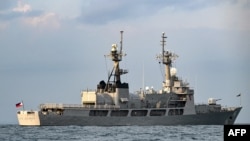The Philippines has detected foreign attempts to access intelligence data, but its cyber minister said on Tuesday no breaches have been recorded so far.
Attempts to steal data are wide-ranging, said minister for information and communications Ivan Uy. Advanced Persistent Threats or APTs have repeatedly attempted but failed to infiltrate government systems, suggesting the country's cyber-defenses have held firm.
APTs are a general term for cyber actors or groups, often state-backed, that engage in malicious cyber activities.
"These have been present for quite some time, and threats come from many actors, but a big majority of them are foreign," Uy told Reuters.
Some of these threats, which Uy referred to as "sleepers," had been embedded in systems before being exposed by government's cyber security efforts.
"Why are these things operating in those systems, without even anybody calling it out?," he said.
So far, the government has not seen any cyberattacks targeting critical infrastructure, he said.
"Hopefully it's because our cyber defenses and cyber security are strong enough," he said.
Uy acknowledged the difficulty of attributing cyber intrusions to specific attackers, as they sometimes leave misleading digital traces.
However, the government is working through diplomatic channels and sharing intelligence with the military, including with other countries, to validate threats and strengthen defenses, he said.
Last year, the Philippine said it thwarted attempts by hackers operating in China to break into websites and e-mail systems of the Philippine president and government agencies, including one promoting maritime security.
Uy described the escalating cyber threats as part of a global arms race, where nations and criminal organizations exploit digital vulnerabilities for financial or strategic gain.
"World War III is happening and it is cyber," Uy said. "These weapons are non-kinetic. They are cyber, digital, virtual, but it's happening. The attacks and defenses are happening as we speak, without any physical manifestation."
Beyond cyberattacks, Uy has also flagged a surge in deepfakes and what he referred to as "fake news media outlets" aiming to manipulate public opinion ahead of the Philippines' mid-term elections in May, and the ministry has deployed tools to combat them.
"Misinformation and disinformation are riskier with respect to democracies like ours, because we rely on elections, and elections are based on personal opinion," Uy said.





